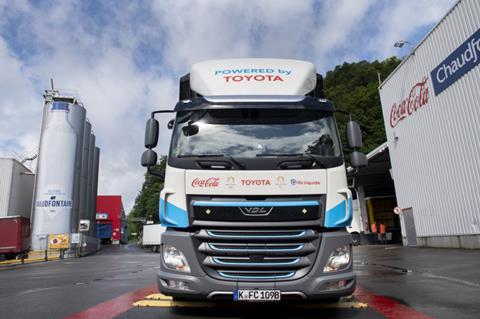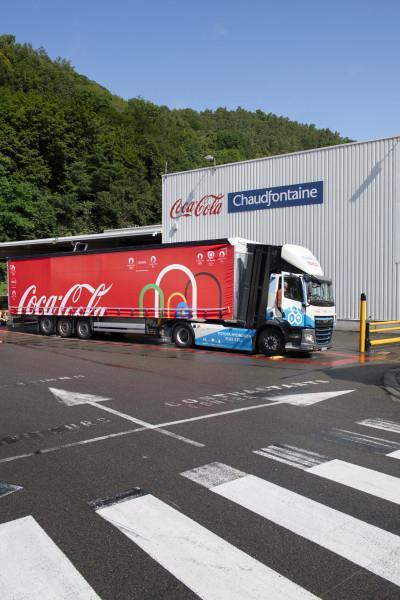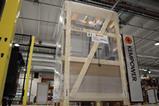Toyota, in collaboration with Coca-Cola and Air Liquide, has launched a pilot programme to test a hydrogen fuel cell truck for long-haul logistics. The project, which began on 24 July 2024, aims to evaluate the potential of hydrogen technology in heavy-duty transportation.

The truck employs Toyota’s fuel cell modules that generate electricity by combining hydrogen and oxygen, producing only water as a byproduct. Air Liquide is providing renewable hydrogen for the project.
This initiative seeks to assess how hydrogen fuel cell technology might reduce carbon emissions in the commercial trucking sector. The programme also aims to contribute to the development of hydrogen infrastructure, leveraging the high hydrogen demand of these vehicles.
Eric Desbonnets, Vice President of Paris 2024 Operations and Sustainability at Coca-Cola, said: “We are pleased to partner with Toyota and Air Liquide to test hydrogen solutions for our long-distance logistics operations. We want to learn from this experience as we continue to work towards reducing our Carbon footprint.”
Erwin Penfornis, Vice President of Hydrogen Energy World Business Line at Air Liquide, noted: “Hydrogen is particularly well-suited to long-distance transportation, providing flexibility and productivity.”

Thiebault Paquet, Vice President of R&D at Toyota Motor Europe, explained the company’s broader hydrogen strategy: “We are expanding the use of our Toyota Fuel Cell Module beyond passenger cars into trucks, buses, coaches, trains, boats, near-shore and short-sea vessels, stationary generators, and so on.”
The programme is part of Toyota’s efforts to support decarbonisation in heavy-duty transport, which represents a quarter of European freight transport in tonne-kilometers. Toyota aims to use insights from this project to work towards their goal of zero tailpipe emissions in logistics operations by 2040.


















